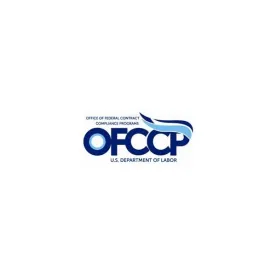This is the third of our series of blog posts on the Office of Management and Budget’s (OMB) July 1 request for comments on OFCCP’s updated proposed scheduling letters. For background, OFCCP first proposed changes to its existing compliance check, establishment review, and focused review scheduling letters in April, and received comments from the contractor community.
These newly proposed July scheduling letters each include changed requirements that, if approved, would impact what contractors must submit at the onset of every compliance review. We have recently blogged about these changes to OFCCP’s proposed compliance check and establishment review scheduling letters. This post explores the proposed changes to the required submissions in every focused review OFCCP plans to conduct.
In short, unlike its changes to its proposed establishment review scheduling letter, OFCCP’s proposed July focused review letter is largely unchanged.
To be fair, OFCCP has withdrawn some requests in its revised July focused review letters, which mirror changes to the revised July establishment review letter. These changes include:
-
Additional Months of Data. For contractors who receive a scheduling letter more than six months into their AAP plan year, the April proposed letters sought to require contractors submit additional personnel activity data and “44(k) data,” which tabulates information on job openings and disabled and veteran applicants and hires, for “every completed month” since the plan year began. The July letters dial this requirement back to require only this data “for at least the first six months.” Contractors may – of course – submit more data, or may provide it for each month, if they wish – but it would no longer be required.
-
Assessments of Personnel Processes, Physical and Mental Qualifications.Echoing the changes in the July establishment review letter, OFCCP has removed a requirement that a contractor provide the date of its more recent assessments and the date scheduled for its next one. Instead, only a “description of the review and any actions taken or changes made as a result of the assessment” would be required.
-
Promotion Pools. Recognizing the lack of regulatory obligation to create data-driven “promotion pools” and the additional burden that this requirement would create, OFCCP has withdrawn the requirement that contractors provide these specific pools for promotion decisions. But, in place of this requirement, OFCCP now seeks permission to require a contractor submit “the job title and job group that each employee was promoted into and the job title and job group from which each employee came” and the workforce representation of individuals with disabilities or protected veterans in the AAP job group from which the employee was promoted. (The current regulations do not require contractors to analyze veteran workforce representation at all, let alone by job group.)
-
Submission Procedures. As with the changes to its other July letters, OFCCP has withdrawn its requirement that contractors must provide audit submissions in electronic format—but still encourages electronic submission “to reduce the amount of time it takes to complete [OFCCP’s] evaluation.”
While these changes are encouraging, a number of the initially proposed changes from the April letters remain in place. The July proposed letters would still require:
-
Applicant and Employee Level Employment Activity Data. As with the April letters, the July letters require contractors submit individual-level applicant, hiring, promotion, and termination data that include veteran and disability personnel activity data by job title and job group. This is far more detailed than the aggregated “job group or job title” personnel activity submission in the current establishment review scheduling letter. And, as we discussed in our blog on the April letter, if OMB approves this requirement, proactive disability and veteran adverse impact analyses may be essential in each audit submission.
-
Unique Identifier Across All Data. The July letters continue to require employers submit a single unique identifier in all employee data files to permit OFCCP to track an individual across all applicant and employee reports. Many contractors may have significant difficulty complying with this data reconciliation across systems.
-
Employee Level Compensation Data. The April letters’ requirement that contractors submit employee level compensation data remains unchanged. The July letters would force contractors to submit compensation for each employee, including base salary/wage rate, hours worked in a typical week, and other types of compensation, such as bonus, incentive, commission, merit increase, locality pay, and overtime—and may lead to the same unpredictable compensation analyses contractors have experienced in its establishment reviews. Because there is no obligation to identify each employee’s disability or veteran status, as the EEO-1 Report requires for race and gender, this missing veteran and disability data will invariably skew any compensation analyses.
-
Executive Order (EO) 11246 AAP. In a continued effort to install a company-wide AAP verification system without the burden of changing the regulations, the July letters continues to require that contractors submit the current EO 11246 (race and gender) AAP for the selected establishment at the beginning of a focused review.
OFCCP represents to OMB that all of the July letters’ proposed obligations will create a burden of roughly 10.5 hours for each focused review – including the time necessary to gather, prepare, review, and submit all required items at the beginning of the focused review process. This burden estimate is unchanged from OFCCP’s assessment of its April letters – despite the changed obligations.
We encourage contractors to review these proposed additional items that would be required in every focused review, evaluate the ability of their current systems to provide this information, and estimate the work-hours necessary to comply with these requirements. Contractors who wish to provide comments to OMB on the substance or anticipated burden of these requirements may do so until July 29th.






 />i
/>i

